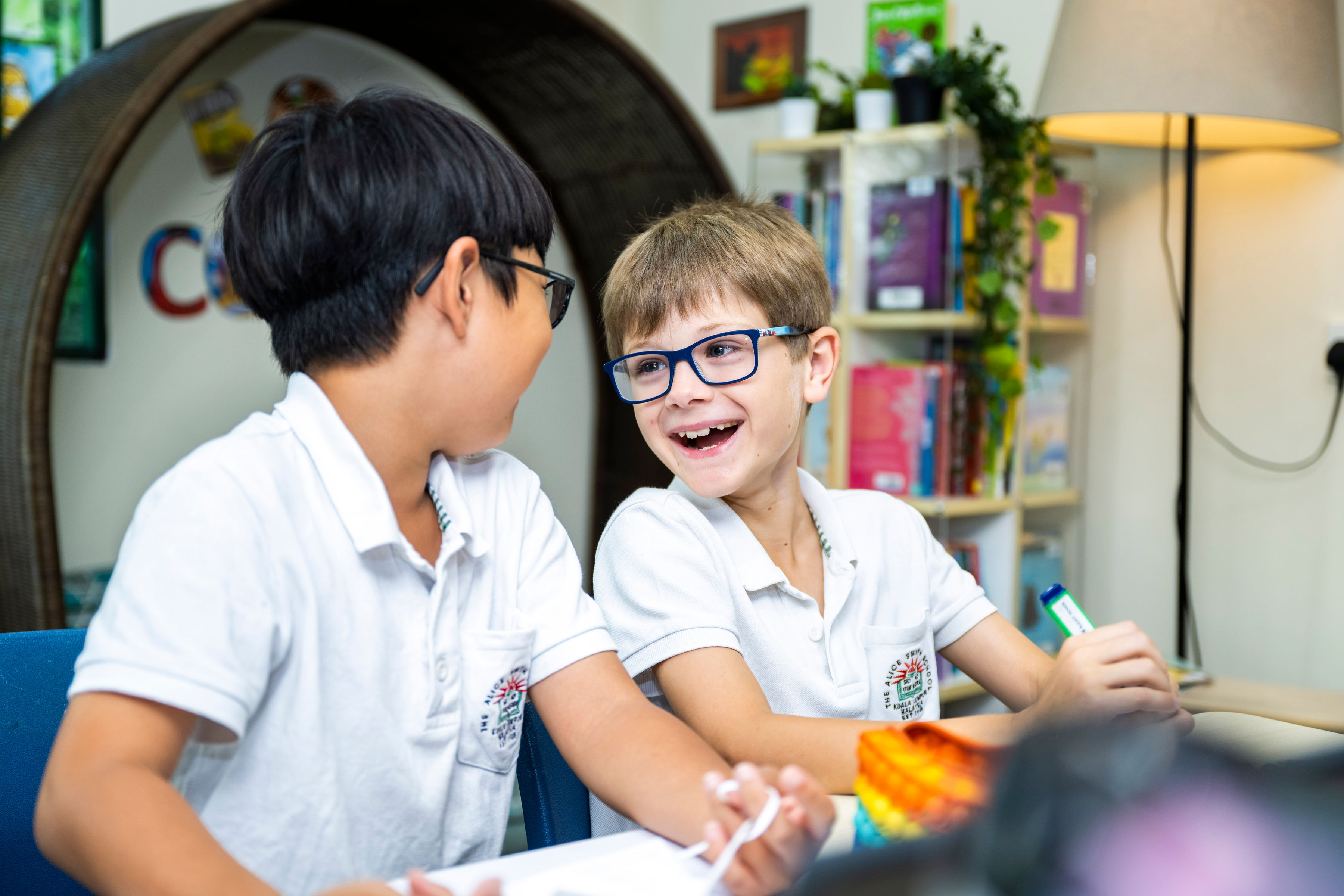Situated in the vibrant heart of Kuala Lumpur, The Alice Smith School stands as a beacon of educational excellence, fostering a community of dedicated educators committed to shaping not just students prepared for university, but also future shapers of the world. Primary Principal Alan McCarthy embodies this ethos, driven by a profound dedication to equipping students with the skills and mindset to craft their own destinies.
“It’s bordering on an obsession, I suppose,” he says. “To equip students with the skills, understanding, and capabilities to become architects of their own futures.”
What is Student Agency and how do Children become ‘Agentic’?
Central to the school’s philosophy is the concept of student agency, where learners take ownership of their educational journey. Alan McCarthy emphasises the importance of empowering even the youngest students, recognising the critical period of brain development from infancy to age seven. Drawing inspiration from Friedrich Fröebel, a pioneering figure in early childhood education, Alice Smith School values childhood as a unique stage deserving of respect and tailored support. Shaping futures starts with children taking the reins of their learning.
“There’s so much that happens from ages zero to seven,” he says. “It’s the biggest period of brain development, so it’s critical we get it right for every child, so that they’re secure, confident, self-regulating, self-motivating, and have great learning habits.”
Friedrich Fröebels created the first kindergarten under the principle that childhood is not merely a preparatory phase for adulthood or subsequent stages of learning. Instead, it is a time to be valued in its own right, where children are honoured for their unique developmental stages and individual needs. Ultimately, he saw education as freedom.
“[The] child is free to determine his own actions according to the laws and demands of the play he is involved in. Through and in his play he is able to feel himself to be independent and autonomous.” – Friedrich Fröbel
It may be perceived that student agency is just granting children voice and choice in their learning, Alice Smith goes deeper, defining agency as active engagement in the learning process. It involves children co-creating their learning goals, shaping their learning experiences, and engaging in iterative processes of planning, creating, modifying, and recreating. Alan McCarthy advocates a paradigm where adults and children are equal partners in the learning journey.
“This doesn’t mean classes are a “free-for-all”. “You kind of have to achieve it,” he says. “There’s a lot of rigour associated with genuine student agency.”

At Alice Smith, play-based learning gives learners the freedom and space to express themselves and exercise their creativity. Source: The Alice Smith School
Play-Based Learning and Development and a Purposeful Learning Environment
Alice Smith School’s commitment to early childhood education focuses on play-based learning until children reach seven years of age. This approach provides a nurturing environment for children to express themselves, fostering creativity and individuality. Student agency at Alice Smith transcends mere choice and voice, encouraging active engagement in learning processes, co-creation of goals, and collaborative learning experiences.
The school’s purpose-built Primary Campus offers a unique setting amidst the urban landscape, featuring wood finishes and green spaces that facilitate seamless indoor-outdoor learning experiences. Children are encouraged to navigate and select resources independently, promoting autonomy and choice in their learning journey. The emphasis on foundational skills like literacy, numeracy, and social-emotional competence ensures a robust educational foundation for meaningful learning experiences.
“It’s the educator’s role to ensure the space feels physically and emotionally safe,” Alan explains. “So that’s the relationship between the adult and the child as they work towards the child becoming independently capable of self-regulating.”
Through observation and conversations with children, educators can gauge the quality of agency and tailor their support accordingly. Here, they believe that deep engagement, characterised by focus, challenge, and the ability to articulate goals and processes, indicates strong student agency.

From little libraries to sandboxes, young learners here are welcome to explore, experiment, discover, and solve. Source: The Alice Smith School
Embracing Continuity and Connection
The seamless transition between year groups and the strong sense of community at Alice Smith School ensure a natural progression for students, fostering a feeling of togetherness and belonging. Alan McCarthy emphasises the school’s commitment to maintaining a supportive environment where students feel connected and empowered throughout their educational journey.
“The sense of agency in the school from pre-school into reception and into year one, the sense of continuity, and the movement between year groups — all of this ensures everything feels natural to our students,” says Alan. “And if they’re staying with Alice Smith for a number of years, we can guarantee they will never be overwhelmed or intimidated in any way. There will always be a very strong feeling of connection, togetherness and belonging.”
Supportive Community and Continuous Engagement
The school’s inclusive approach extends to parents, offering opportunities for involvement and creating a supportive network that nurtures a sense of comfort and belonging for young learners. Parents are always welcome to experience the care, connection, and personalised approach that permeates the school. There’s a “soft drop-off” option for three- and four-year-olds, where parents can accompany their children into the school every morning to play and learn alongside them while getting to know their teachers. This daily interaction creates a tight-knit triangle of support that gives young children a strong sense of comfort and connection. Every initiative is intentional.
Follow Alice Smith School on X, YouTube, Facebook, and Instagram













